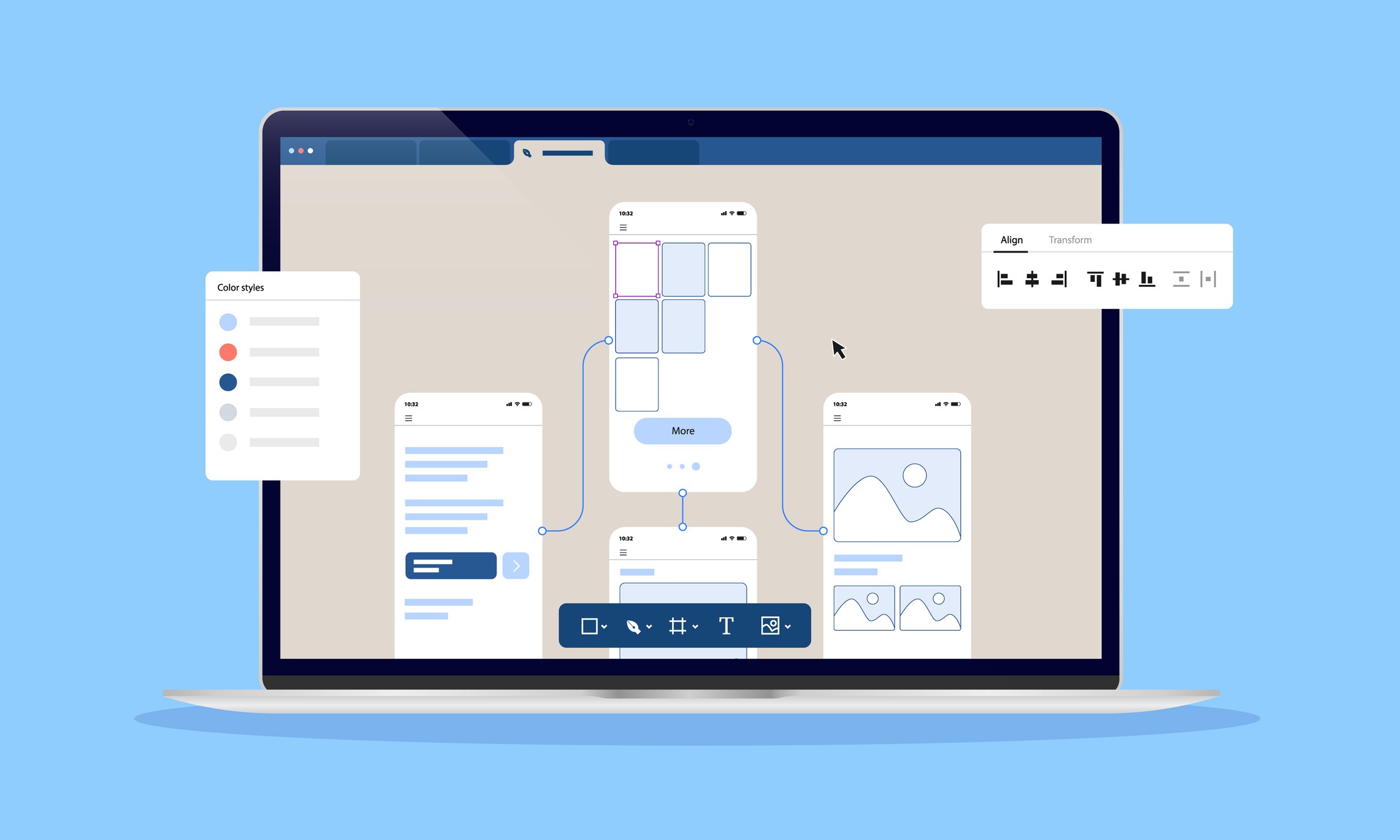If you’ve found yourself turning to ChatGPT or another AI tool instead of Google when you need a quick answer, you’re not alone. More people are starting to treat AI like a personal research assistant, asking it for summaries, comparisons, or even recommendations they used to search for themselves. It’s a noticeable shift in how we look for information.
But let’s be clear: this doesn’t mean traditional search engines are disappearing. Google isn’t being replaced, it’s just sharing the stage with a new kind of tool. What’s changing is how people interact with search. AI is reshaping the journey, especially for early-stage research and question-driven queries. That means your website may need to show up in different ways to stay visible.
At e-dimensionz, we’ve been watching this change unfold from a development standpoint. Our clients are asking new questions: Do we need to write differently? Should we restructure our pages? Will search still bring traffic in a year? And while there’s no one-size-fits-all answer, adapting to these changes is a lot more productive than fearing them.
How Search Behaviour Is Changing
Over the past year, the way people search for information online has shifted noticeably. Tools like ChatGPT, Perplexity, and Google’s own AI assistant (Gemini) are making it easier to ask full, natural-language questions and get back direct, conversational answers. No digging required.
Instead of typing fragmented keywords into Google, users now ask AI tools things like:
- "What’s the difference between a heat pump and a furnace?"
- "Which is better for a small team, Trello or Asana?"
- "Can I write off website hosting as a business expense in Canada?"
In many cases, they get a pretty decent answer .... fast. That has led to a noticeable drop in traditional “click-through” behaviour. People are skimming less, clicking fewer links, and increasingly trusting AI-generated summaries (even if they don’t always verify the source).
That said, Google isn’t obsolete. It’s just being used differently. It’s still the go-to for:
- Finding local businesses and service providers
- Shopping comparisons and customer reviews
- Researching news, images, or technical documentation
- Navigating to known sites or digging deeper beyond what AI tools can summarize
We’re in a transition period where AI is starting to shape how people get quick answers, while search engines still handle the heavy lifting for discovery and verification. The challenge for website owners is figuring out how to stay present in both paths.
What This Means for Your Website
As search habits shift, so do the rules around what makes a website useful. One of the biggest changes is that users (and AI tools) are no longer digging through pages of content to find answers. If the information isn’t clear, structured, and easy to surface, it might never get seen.
Content that’s buried halfway down a long, unstructured page is more likely to be skipped entirely. AI tools are trained to scan for patterns, such as headings, summaries, direct answers, and pull the most accessible info first. The same goes for human visitors: if they don’t find what they need within a few seconds, they’re gone.
That doesn’t mean your content has to be short, just that it needs to be organized. Break things into sections. Use headings that make sense. Include a summary if it helps. And make sure every page has a clear purpose.
More importantly, AI tools tend to favour content that’s specific, clear, and demonstrates real authority. Generic writing doesn’t cut it. If you’re explaining something, explain it well. If you’re offering advice, make it practical. That kind of content is far more likely to be referenced by AI responses and trusted by users who do click through.
And while AI tools can summarize information, they can’t replicate interactive, functional elements. Tools like quote calculators, comparison charts, or dynamic FAQs still give your site a reason to be visited. These kinds of features offer real utility, and that’s something both search engines and users continue to value.
For website owners, this is a good time to rethink content not just as text, but as a combination of structure, usefulness, and experience. It’s not about cramming in keywords anymore. It’s about making your site genuinely helpful and easy to navigate.
Adapting Without Chasing Trends
You don’t need to overhaul your website every time Google or OpenAI changes something, but you do need to keep it adaptable. Many of the changes we're seeing in search behaviour aren't about flashy trends; they’re about clarity, usefulness, and accessibility.
A good starting point is to refresh old content. If you have blog posts, service pages, or FAQs that still get traffic but haven’t been touched in a while, now’s the time. Add clear headings. Break up long paragraphs. Include a quick summary at the top if it makes sense. This not only helps AI tools parse your content better, it helps real visitors find what they need faster.
Above all, write for humans first. Google and AI tools continue to prioritize content that’s genuinely helpful over content that’s just been gamed for algorithms. If your article answers a question well, or your page guides someone through a process clearly, that value will still come through.
Where you can, add interactive elements that AI can’t replicate. That might be something simple like a comparison chart or accordion-style FAQs, or something more involved like a custom quote calculator or form. These are the kinds of features that turn your site from static content into a practical resource.
And finally, don’t overdo the technical tweaks. Yes, it’s still important to use good meta titles and descriptions, and make sure your site is crawlable. But over-optimizing every heading or stuffing structured data where it doesn’t make sense often does more harm than good.
Clean code, good structure, and fast load times go further than any SEO hack.
What to Consider From a Development Perspective
If your site feels a little outdated or you find yourself constantly working around limitations just to make small updates, this might be a good time to step back and reassess. Search is changing, but the foundation of a good website hasn’t: it still needs to be easy to maintain, fast to load, and built in a way that serves real users, not just algorithms.
If your site is hard to update or optimize, a website rebuild could be worth considering. Modern frameworks and CMS setups make it easier to structure content cleanly, make performance improvements, and integrate new features without creating a mess behind the scenes.
Adding custom tools and interactive features, like form builders, quote generators, or product finders, can also add real value. These elements aren’t just helpful to your visitors; they’re the kind of functionality that sets your site apart from AI-generated summaries or generic search results.
Behind the scenes, site performance matters more than ever. A mobile-first layout, semantic HTML, and clean CSS all help your content load quickly and display properly, which improves user experience and, by extension, how your site performs in both AI tools and search engines.
Not sure where to start? Send us a quick message. We’re happy to take a look and talk through what might help.
Whether it’s a light refresh, a new interactive element, or a deeper rebuild, we can walk through what makes sense based on where your site is now and where you want it to go.
Checklist: How to Help Your Website Show Up in AI Search Tools
As more people turn to ChatGPT, Bing Copilot, Perplexity, and other AI tools for answers, your website content can still acquire traffic if it's structured and published with discoverability in mind. Below is a checklist to help improve your chances of your website being used as a resource:
Content Structure and Quality
- Use clear, consistent heading tags (H1, H2, H3)
- Write in a question-and-answer format where helpful (FAQs)
- Prioritize readability and clean formatting
- Avoid keyword stuffing or fluff content
Authority and Backlinks
- Earn backlinks from high-authority sites (.gov, .edu, news outlets, industry blogs)
- Share your content in relevant forums or online communities (e.g., Reddit, Quora)
- Include author bios with real credentials or expertise
Schema and Structured Data
- Add schema markup for content types (FAQ, Product, Article, Local Business, etc.)
- Use FAQ schema to increase the chance of AI summarization
- Validate structured data with Google’s Rich Results Test
Search Engine Optimization (Especially Bing)
- Submit your sitemap to Bing Webmaster Tools
- ChatGPT’s browsing tools (when enabled) and Copilot rely heavily on Bing search results
- Optimize meta titles and descriptions
- Ensure fast load speed and mobile responsiveness
- Avoid blocking AI tools with aggressive bot restrictions
Content Originality and Relevance
- Publish original insights, tutorials, or niche expertise
- Keep content updated and relevant
- Answer specific questions in a clear, conversational tone
Open Contributions and Citations
- Share useful resources on platforms like GitHub, Reddit, or public forums
- Consider releasing portions of your content as open-access (e.g., Creative Commons)
- Include citations, stats, or references to support your points
Bonus Tip:
If you create developer tools, APIs, plugins, or anything that might be used by others, consider publishing to GitHub or NPM and documenting clearly, these are often ingested into AI training data and API assistants.
How to Stay Ahead Without Chasing Trends
Despite all the talk about AI replacing search, this isn’t the end of SEO or websites. It’s just another shift in how people find and interact with information online. What’s changing is the way content is discovered and consumed, not the need for clear, useful, well-structured websites.
If there’s one thing to take away, it’s this: user experience matters more than ever. Whether someone finds you through Google or gets a summary from an AI tool, they’ll still end up on your site if you’re offering something genuinely helpful.
You don’t need to overhaul everything overnight, and you definitely don’t need to chase every new trend. But if your site feels out of date, clunky to update, or not quite serving your audience anymore, it might be time to take a closer look.
If you’re unsure where to start, we’re happy to help you figure out what makes sense, whether that’s a few small changes or something more in-depth. No pressure. Just a conversation to explore what’s working, what’s not, and what might come next.




